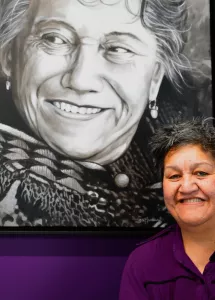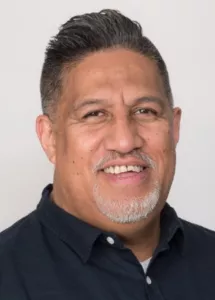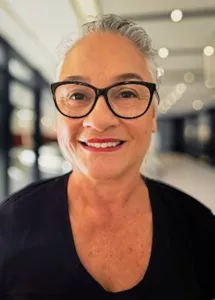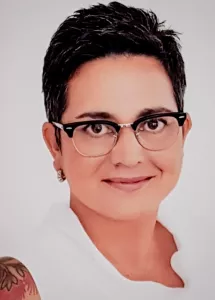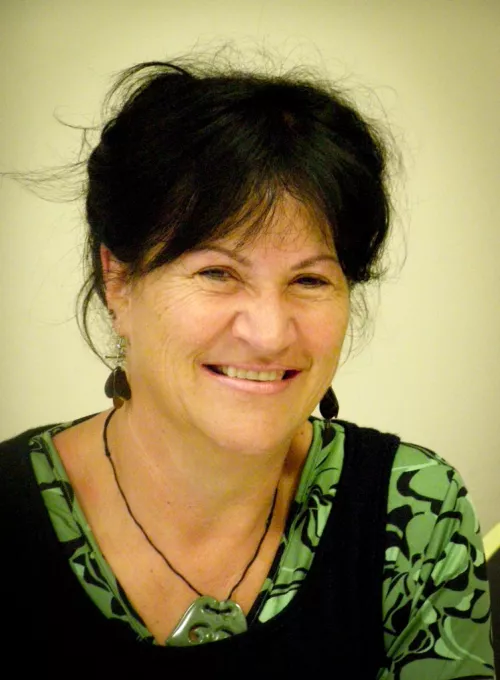
Jean Te Huia (Ngāti Kahungunu) is a well-known advocate for Māori health, particularly maternal and child health. While her midwifery and health services are located in Hawke’s Bay, her participation on national advisory committees has enabled her expertise to influence national policies. Her ongoing concern with the discriminatory practices experienced by Māori women seeking maternity care has been a prime motivator of her involvement in the Mana Wahine kaupapa inquiry currently lodged with the Waitangi Tribunal.
Jean is “a nurse, an author, a chef, a midwife, an employer, a nanny, a wife [to Joe], a mother [to daughters Beverly, Kataraina and JoJo] and a friend” (Dine, 2015). She has been a midwife for nearly 30 years, and her accomplishments in health include founding the first midwifery group and being the first Māori woman to graduate with a Masters in nursing from Eastern Institute of Technology. To provide health services within local communities, Jean founded Choices Health and Community Services. Jean also helped found a marae at Waimarama, and recently she has initiated a reintegration programme that supports prison inmates to prepare for employment, and then find work when they are released.
When it comes to providing services in communities – whether it be primary care, pre-school daycare, or a local gym – Jean’s kaupapa is to keep costs down (if not free) and services culturally responsive so that Māori whānau can have easy access. She is also clear that all peoples are welcome at these services.
In acknowledgement of her many contributions to her community, Jean was nominated for a Pride of New Zealand Award in 2015. In 2019 she was runner-up in the Māori Health Volunteer Individual Awards in recognition of her voluntary role as CEO of Ngā Maia o Aotearoa, including ensuring that Māori students at the four midwifery schools are supported to fulfil their potential.
This profile can only touch upon the wealth of Jean’s achievements in the service of whānau Māori. Many mothers and babies would undoubtedly tell a different story about Jean – one that is about her compassion for wāhine Māori me ngā pēpi.
Jean is currently studying for her Doctorate at Te Whare Wānanga o Awanuiarangi- Thesis Title- Maori Women- Dehumanised as Mother’s by Colonisation.
More about Jean
Dine, Jonathan (2015). Pride of NZ: Nanny Jean works for the benefit of all. Hawke’s Bay Today, 11 June 2015.
O’Connor, Teresa (2007). Passionately – A nurse and midwife in Hawke’s Bay has established a successful Māori health service for women and children. Kai Tiaki Nursing New Zealand, Vol 13(5), pp. 12-13.
Jean has submitted a Treaty of Waitangi claim with the Tiriti O Waitangi Kaupapa Enquiry – Against the Uplift and subsequent Abuse of Maori Children in State Care.
Written by Jean
Author of Ministry of Health Programs- Mother and Pepi- 1994 and Tamariki Ora – 1998. Wrote and piloted both programs for the Ministry of Health which are now both National Programmes through-out New Zealand.
Te Whare Oranga Ake - Re-Integration Programme
Wepa, Dianne & Te Huia Jean (2006). Cultural safety and the birth culture of Māori. Te Komako, Hotoke, pp. 26-31.
Dr Fiona Cram, Ngāti Pāhauwera, Director, Katoa Limited
